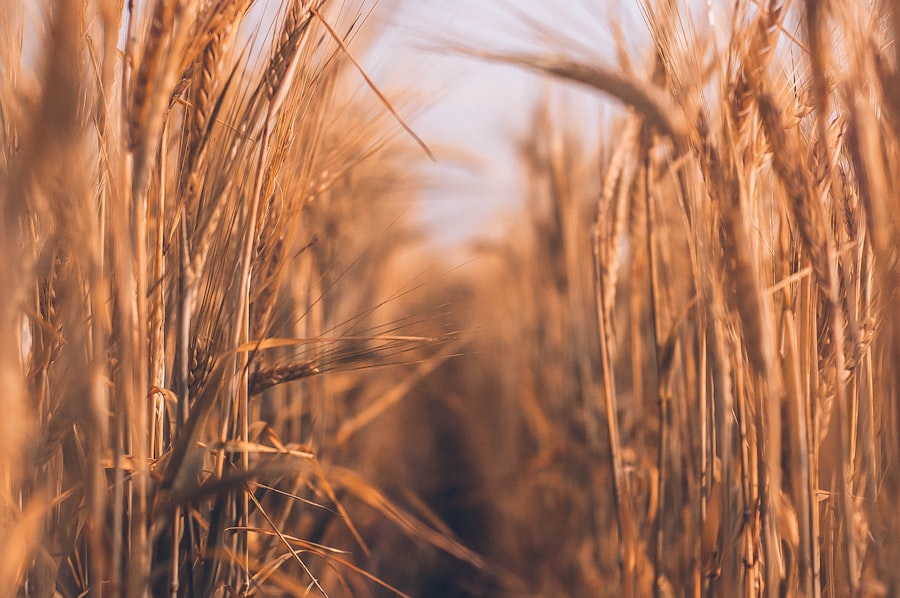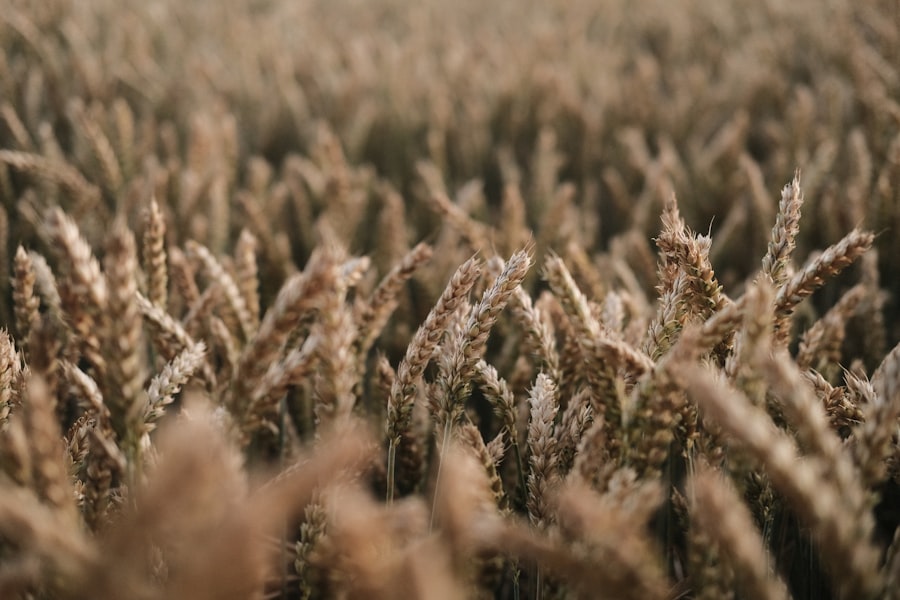A balanced diet is essential for the health and well-being of chickens. Chickens require a diverse range of nutrients to support their growth, immune function, and egg production. A well-balanced diet provides chickens with the necessary vitamins, minerals, proteins, and carbohydrates they need to thrive.
Without proper nutrition, chickens may experience impaired growth, decreased egg production, and increased vulnerability to diseases. The quality of a chicken’s diet directly impacts the quality of eggs produced. Nutrient-rich feed can result in eggs with stronger shells, more vibrant yolks, and higher nutritional content.
Additionally, a balanced diet contributes to the overall welfare of chickens, promoting natural behaviors and improving their quality of life. Adequate nutrition is crucial for maintaining optimal health, productivity, and well-being in chickens.
Table of Contents
- 1 Essential Nutrients for Chicken Health
- 2 Best Foods to Feed Chickens for Optimal Health
- 3 Foods to Avoid Feeding Chickens
- 4 Tips for Feeding Chickens to Maintain Health
- 5 Special Considerations for Different Stages of Chicken Development
- 6 Creating a Healthy Feeding Routine for Chickens
- 7 FAQs
- 7.1 What are the best foods to feed to chickens to keep them healthy?
- 7.2 What should be included in a balanced chicken feed?
- 7.3 What fresh fruits and vegetables are good for chickens?
- 7.4 Are there any foods that should be avoided when feeding chickens?
- 7.5 How often should chickens be given treats or snacks?
Key Takeaways
- A balanced diet is crucial for the overall health and well-being of chickens, providing essential nutrients for growth, egg production, and disease resistance.
- Essential nutrients for chicken health include protein, carbohydrates, fats, vitamins, and minerals, which can be obtained from a variety of foods such as grains, vegetables, fruits, and insects.
- The best foods to feed chickens for optimal health include a mix of commercial chicken feed, fresh fruits and vegetables, and occasional treats like mealworms or kitchen scraps.
- Foods to avoid feeding chickens include moldy or spoiled food, salty snacks, sugary treats, and toxic plants, as these can negatively impact their health and egg production.
- Tips for feeding chickens to maintain health include providing access to clean water at all times, offering a balanced diet, and monitoring their food intake to prevent overeating or undernourishment.
Essential Nutrients for Chicken Health
Protein: The Building Block of Health
Protein is crucial for supporting muscle development, feather growth, and egg production in chickens.
Energy and Vitality
Carbohydrates provide chickens with energy for daily activities and maintaining body temperature. Fats are essential for supporting healthy skin and feathers, as well as providing a concentrated source of energy.
Vitamins and Minerals: The Key to Optimal Health
Vitamins and minerals play a critical role in supporting various bodily functions in chickens. For example, vitamin A is important for maintaining healthy vision and immune function, while calcium is essential for producing strong eggshells. Additionally, minerals such as phosphorus and magnesium are necessary for bone development and overall growth. Providing a well-balanced feed that contains these essential nutrients is crucial for supporting the overall health and vitality of chickens.
Best Foods to Feed Chickens for Optimal Health

When it comes to feeding chickens for optimal health, there are several key foods that should be included in their diet. A high-quality commercial poultry feed is an excellent foundation for meeting the nutritional needs of chickens. These feeds are specifically formulated to provide a balanced combination of protein, carbohydrates, fats, vitamins, and minerals to support chicken health and productivity.
In addition to commercial feed, chickens can also benefit from consuming a variety of natural foods such as fruits, vegetables, and grains. Fruits such as apples, berries, and melons can provide chickens with essential vitamins and antioxidants. Vegetables like leafy greens, carrots, and squash are rich in vitamins and minerals that support overall health.
Grains such as corn, wheat, and oats can serve as a valuable source of carbohydrates and energy for chickens. By incorporating a combination of commercial feed and natural foods into their diet, chickens can receive a well-rounded nutritional intake that supports their overall health and well-being.
Foods to Avoid Feeding Chickens
While there are many foods that can benefit the health of chickens, there are also several foods that should be avoided. Some common foods that are harmful to chickens include avocado, chocolate, caffeine, and raw or dried beans. These foods contain compounds that can be toxic to chickens and may lead to illness or even death if consumed in large quantities.
Additionally, it’s important to avoid feeding chickens foods that are high in salt, sugar, or processed ingredients. These types of foods can lead to health issues such as obesity, diabetes, and digestive problems in chickens. It’s also important to avoid feeding chickens spoiled or moldy food, as this can lead to food poisoning and other health issues.
By being mindful of the foods that should be avoided, chicken owners can help ensure the health and safety of their flock.
Tips for Feeding Chickens to Maintain Health
Feeding chickens to maintain their health requires careful attention to their nutritional needs and feeding habits. One important tip is to provide access to fresh, clean water at all times. Water is essential for digestion, temperature regulation, and overall health in chickens.
Additionally, it’s important to provide a consistent supply of high-quality commercial poultry feed that is specifically formulated to meet the nutritional needs of chickens. Another tip is to offer natural foods such as fruits, vegetables, and grains as occasional treats to supplement their diet. These natural foods can provide additional nutrients and enrichment for chickens.
It’s also important to monitor the amount of food provided to prevent overfeeding or underfeeding. Overfeeding can lead to obesity and related health issues, while underfeeding can result in malnutrition and reduced egg production. By following these tips and being mindful of their feeding habits, chicken owners can help maintain the health and well-being of their flock.
Special Considerations for Different Stages of Chicken Development

Early Stages: Chicks and Pullets
Different stages of chicken development require specific nutritional considerations to support their growth and development. For example, chicks require a higher protein content in their diet to support rapid growth and feather development. A starter feed with around 20% protein is recommended for chicks during their first few weeks of life.
Maturity and Egg Production
As they mature into pullets and cockerels, the protein content in their feed can be gradually reduced. Laying hens have specific nutritional needs to support egg production and shell quality. A layer feed with added calcium is essential for providing the necessary nutrients for strong eggshells.
Additional Support for Laying Hens
Additionally, providing oyster shells or crushed eggshells as a calcium supplement can further support the health of laying hens.
Roosters and Overall Health
Roosters also have specific nutritional needs to support their reproductive function and overall health. By understanding the unique nutritional requirements of chickens at different stages of development, chicken owners can ensure that their flock receives the appropriate diet to support their growth and well-being.
Creating a Healthy Feeding Routine for Chickens
Creating a healthy feeding routine is essential for promoting the overall health and well-being of chickens. One important aspect of a healthy feeding routine is providing access to fresh feed at regular intervals throughout the day. This helps ensure that all chickens have an opportunity to consume an adequate amount of feed and prevents competition for food among the flock.
It’s also important to provide access to fresh water at all times to support proper digestion and hydration in chickens. Additionally, maintaining a clean feeding area free from mold, pests, and contaminants is crucial for preventing illness and promoting overall health in chickens. By establishing a consistent feeding routine that prioritizes access to fresh feed and water in a clean environment, chicken owners can help maintain the health and vitality of their flock.
If you’re looking for tips on keeping your chickens healthy, you might want to check out this article on chicken coop run plans. It’s important to provide your chickens with a balanced diet to keep them healthy, so this article could provide some helpful information on the types of foods to feed them.
FAQs
What are the best foods to feed to chickens to keep them healthy?
Some of the best foods to feed to chickens to keep them healthy include a balanced chicken feed, fresh fruits and vegetables, and occasional treats such as mealworms or sunflower seeds.
What should be included in a balanced chicken feed?
A balanced chicken feed should include a mix of grains, protein sources, vitamins, and minerals. This can include ingredients such as corn, soybean meal, wheat, and calcium.
What fresh fruits and vegetables are good for chickens?
Fresh fruits and vegetables that are good for chickens include leafy greens, carrots, cucumbers, apples, and berries. These provide essential nutrients and can also serve as enrichment for the chickens.
Are there any foods that should be avoided when feeding chickens?
Foods that should be avoided when feeding chickens include salty or sugary snacks, as well as anything moldy or spoiled. Additionally, chickens should not be fed avocado, chocolate, or raw beans, as these can be toxic to them.
How often should chickens be given treats or snacks?
Treats or snacks should be given to chickens in moderation, as they should primarily be consuming a balanced chicken feed. Occasional treats can be given as a supplement, but should not make up the majority of their diet.
Meet Walter, the feathered-friend fanatic of Florida! Nestled in the sunshine state, Walter struts through life with his feathered companions, clucking his way to happiness. With a coop that’s fancier than a five-star hotel, he’s the Don Juan of the chicken world. When he’s not teaching his hens to do the cha-cha, you’ll find him in a heated debate with his prized rooster, Sir Clucks-a-Lot. Walter’s poultry passion is no yolk; he’s the sunny-side-up guy you never knew you needed in your flock of friends!







